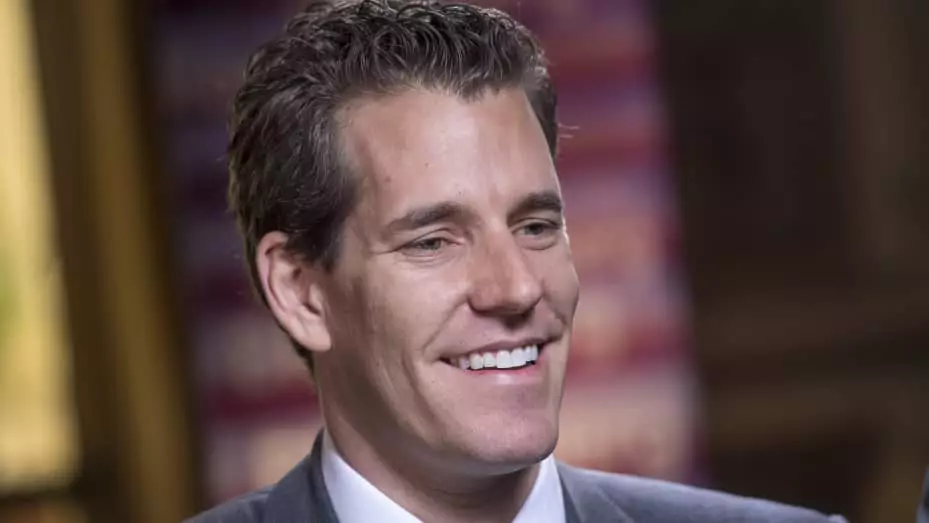The cryptocurrency landscape has experienced profound growth and transformation, yet it remains ensnared in a web of regulatory ambiguity and scrutiny. Tyler Winklevoss, co-founder of the Gemini exchange, has recently taken a firm stance against this regulatory overreach, joining forces with Coinbase CEO Brian Armstrong in espousing a position that aims to hold accountable those associated with anti-cryptocurrency policies. This movement reveals a larger sentiment within the crypto community, highlighting a demand for transparency, fairness, and a reevaluation of relationship dynamics with legal professionals and regulators.
Winklevoss’s announcement to cut ties with any legal entities employing former officials of the U.S. Securities and Exchange Commission (SEC) who have been involved in actions against the crypto space is a critical pivot in the industry’s narrative. This course of action was inspired by Armstrong’s recent statements reflecting discontent with law firms that hire ex-SEC officials, which he sees as enabling misconduct and regulatory overreach. By calling for a “running list” of such individuals, Winklevoss engages in a proactive response that seeks to foster accountability among legal practitioners and fortify the crypto sector against perceived injustices.
The decision to sever ties with Milbank, following their hiring of Gurbir Grewal, the former SEC Director of Enforcement, underscores the depths of dissatisfaction within this community. Grewal’s departure from the SEC, just as the agency was appealing its case against Ripple, raises questions not only about the timing of his exit but about the overarching integrity of the SEC’s enforcement strategy. Legal experts’ ongoing scrutiny of these developments suggests a broader discontent with the agency’s tactics and their implications for the digital asset industry.
The establishment’s ongoing battle with Ripple Labs has become emblematic of a larger struggle between innovation and regulation within the space. Critics, such as lawyer Jeremy Hogan, have pointed out that the SEC’s approach in this instance risks undermining its own authority and effectiveness. If the regulatory body is perceived as an impediment to innovation, it could trigger backlash from stakeholders across the ecosystem, prompting further recalcitrance among crypto advocates and entrepreneurs.
Armstrong’s insistence that senior SEC officials must be held accountable for their role in the agency’s contentious tactics aligns with a more profound sentiment in the crypto community—that past regulatory overreach should not be rewarded or legitimized by financial collaborations. This sentiment is echoed by Winklevoss in his condemnation of former officials who profit from relationships with the very industry they once sought to regulate harshly.
The dialogue initiated by Winklevoss and Armstrong extends beyond mere corporate policy—it serves as a rallying cry for the community at large to demand better from regulatory bodies. As seen in the context of former SEC Chair Gary Gensler, the situation illustrates an increasing frustration with leadership that seems out of touch with the innovative potential of digital currencies. This disillusionment has sparked discussions about hiring practices within the regulatory landscape, echoing earlier sentiments expressed by Justin Sun, who offered Gensler a position contingent on a change in attitude toward cryptocurrencies.
This call for accountability is symptomatic of a larger desire for a collaborative and transparent regulatory framework that supports innovation without stifling it. By taking a hard stance against associations with those who have historically promoted anti-crypto agendas, progressive leaders like Winklevoss and Armstrong are advocating for a reformed relationship between regulators and the crypto industry—one that prioritizes principles of fairness and progressiveness over punitive bureaucratic measures.
Ultimately, the actions prompted by Winklevoss and Armstrong illustrate a critical turning point in the relationship between the cryptocurrency sector and its regulatory overseers. Their firm stance against hiring ex-SEC officials implicated in overreach is not just a corporate strategy but part of a collective endeavor to reshape the narrative surrounding digital currencies. By holding former regulators accountable and demanding a more equitable environment, they are pushing the industry towards a future where innovation thrives in harmony with responsible regulation. The ongoing debate over these issues not only highlights the complexities faced by crypto innovators but calls for a reconsideration of how the regulatory framework can evolve to support a sustainable crypto economy.

